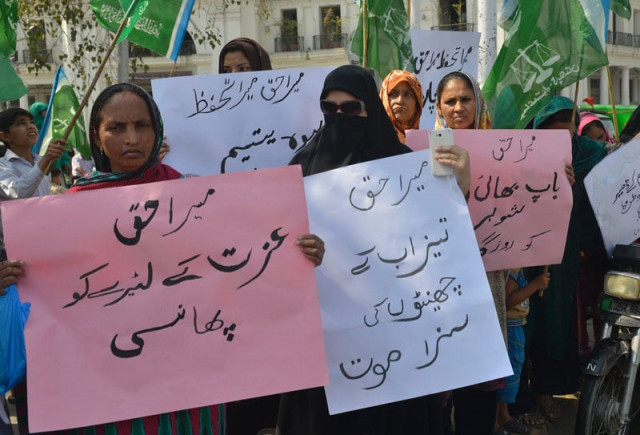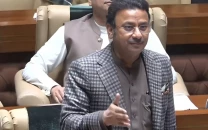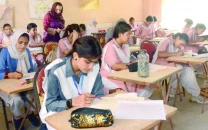International Women's Day 2016
Lack of Rules of Business for pro-women bills are resulting in failure of their proper implementation

The event has its origins in the Second International Conference of Working Women in Copenhagen, in 1910. Clara Zetkinwas a leader of the Women’s Office for the German Social Democratic Party and she proposed that an international day for women should be celebrated every year. Ms Zetkin hoped that such a day would provide an opportunity for women to press their demands and set a future course for themselves, as well as reflect on the achievements of women in the preceding year. Her proposal was unanimously accepted.
Around 106 years later, we take a look at the picture for women in Pakistan.

Enactment of the Punjab Protection of Women against Violence Bill has once again triggered a debate on women’s rights and empowerment in the country’s largest province. However, while the province may seem to be leading on the policy front, it is mass awareness of the very same laws as well as their effective implementation that are viewed as major hurdles.
Since 2008, the province has seen successive governments of the Pakistan Muslim League-Nawaz, under which it managed to enact various laws on women rights and protection. Three major laws include the Protection against Harassment of Women at the Workplace Act 2010, the Punjab Commission on the Status of Women Act 2014, and the Punjab Fair Representation of Women Act 2014.
Read the full story here.

A number of women-related laws have been introduced in Sindh, with a few of them already passed in the provincial legislature, since the Pakistan Peoples Party (PPP) assumed power in 2008.
However, activists and parliamentarians say no Rules of Business have been established for any of the pro-women bills passed up till now, resulting in failure of their proper implementation. “Rules of Business are basically an extension into the working of the bill,” explains lawyer and activist Maliha Zia Lari, who helped draft the domestic violence bill.
Read the full story here.

At least two bills relating to women’s rights were passed in the Gilgit-Baltistan (G-B) Legislative Assembly in May 2013 owing to the efforts of the then Tourism, Culture, Sports and Youth Affairs advisor Sadia Danish. While the assembly passed the anti-sexual harassment bill and another on safeguarding the rights of children almost unanimously, it blocked the one seeking a ban on underage marriages on religious grounds in December last year.
Although a majority of lawmakers in the existing assembly, including Women Development and Tourism Minister Sobia Jabeen Muqaddam, were hoping to see the Child Marriage Restraint Bill sail through, it hasn’t been able to do so. After members of the assembly refused to endorse it, Speaker Fida Muhammad Nashad referred the bill to a committee for review.
Read the full story here

The Balochistan Assembly recently passed the Protection of Women from Harassment at Workplace 2016. Other bills in the pipeline include the Protection of Women from Acid Attacks and Protection of Women from Domestic Violence.
MPA Dr Shama Ishaq, who chairs the provincial assembly’s Standing Committee on Social Welfare, Women Development and Youth Affairs, is one of the most vocal advocates of women’s rights in the provincial legislature.
Red the full story here.

A week back I visited a female government employee to inquire about the status of laws concerning women in Khyber-Pakhtunkhwa. She obliged by giving me some brief information on the subject which included praises for the government’s efforts and mention of special contribution by a bearded senior computer operator who happened to be seated in her office along with another woman. After a brief conversation, I handed her my visiting card and departed.
Almost an hour later, the same lady rang me up in a hysterical state. She said soon after I left, the very computer operator she had spoken highly of humiliated her and threatened her by saying she’ll face an inquiry by the department for speaking to a journalist. The frightened lady kept calling daily afterwards until I assured her that her identity would be protected in my report.
Read the full story here.



















COMMENTS
Comments are moderated and generally will be posted if they are on-topic and not abusive.
For more information, please see our Comments FAQ